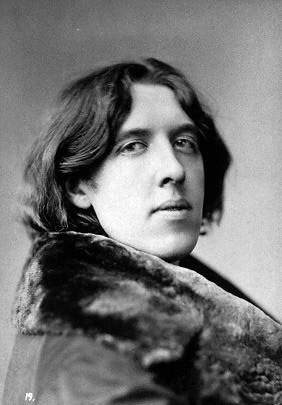 Let me be the first to congratulate Chuck Klosterman on writing a wonderfully forgettable bit of sports journalism about Gilbert Arenas, published today in the New York Times Play Magazine. He invests 1500 glossy words recapitulating what 1500 bloggers have written 1500 times: Arenas is an eccentric dude. No kidding? I had no idea.
Let me be the first to congratulate Chuck Klosterman on writing a wonderfully forgettable bit of sports journalism about Gilbert Arenas, published today in the New York Times Play Magazine. He invests 1500 glossy words recapitulating what 1500 bloggers have written 1500 times: Arenas is an eccentric dude. No kidding? I had no idea.There were moments in Klosterman’s article when I found myself talking to it. “Chuck, wait, you forgot about online poker at halftime…And tickling Antawn’s armpit before games…What about the practical jokes, Chuck, the jokes?” You see, it’s no longer that interesting to read about Gilbert’s goof-offs. We know about them already. We know he puts baby-powder on sugar-dusted donuts to fool teammates; he wears a smaller shoe to make sure his feet don’t look too big. He holds midnight workout sessions and spends too much time playing video games. During games, he picks his nose and deposits the tacky treasures behind each earlobe.
 Klosterman is convinced Arenas’s antics mean nothing beyond their doing. He thinks, in other words, the odd habits are meaningful only insofar as they seem wholly unmotivated. “People are not fascinated by Arenas because his behavior is outrageous,” Klosterman writes, “they’re bewitched because they have no idea what his behavior is supposed to signify.” Klosterman throws up his hands in awed frustration like a first-time reader of Joyce. Maybe the point of all this nonsense is that it has no point, no significance, no underlying intended meaning or purpose?
Klosterman is convinced Arenas’s antics mean nothing beyond their doing. He thinks, in other words, the odd habits are meaningful only insofar as they seem wholly unmotivated. “People are not fascinated by Arenas because his behavior is outrageous,” Klosterman writes, “they’re bewitched because they have no idea what his behavior is supposed to signify.” Klosterman throws up his hands in awed frustration like a first-time reader of Joyce. Maybe the point of all this nonsense is that it has no point, no significance, no underlying intended meaning or purpose?Needless to say, I find that explanation deeply unsatisfying.
Here we have a guy passionately committed to cultivating his own character—a charade of the ego—a man who, as Klosterman claims, appears always and eminently “knowable” (emphasis original). We have a guy who relishes the cult of personality, perhaps even, on occasion, at the expense of performance. We have a guy determined to avenge failures of the past with 84, 85 high-arcing bombs on those he perceives as enemies. We have a D.C. guy who stuffs the (All-Star) ballot box, who steals the vote and appoints himself (Black) President.
But enough with Dubya; let’s talk about Arenas.
 Gilbert embodies the anaesthetized rhetorical (rather than philosophical) verve of postmodern aesthetics.* Even if his antics feel without meaning—are, in fact, unmotivated—their form still generates significance. Asking “why” is the wrong question for Gilbert Arenas. He fascinates, like the highlight reel itself, only as a function of “how”—how he celebrated his 25th birthday; how he won a shooting contest one-handed; how he dropped 60 on the Lakers. These are questions of form, not intention, and they have a meaning even if Arenas refuses to offer it.
Gilbert embodies the anaesthetized rhetorical (rather than philosophical) verve of postmodern aesthetics.* Even if his antics feel without meaning—are, in fact, unmotivated—their form still generates significance. Asking “why” is the wrong question for Gilbert Arenas. He fascinates, like the highlight reel itself, only as a function of “how”—how he celebrated his 25th birthday; how he won a shooting contest one-handed; how he dropped 60 on the Lakers. These are questions of form, not intention, and they have a meaning even if Arenas refuses to offer it.Gilbert’s form is lovably spectacular but little else. We see that even in his clutch game-winners. Those last-second shots, which seem so focused on intention, on the question of “why” (i.e., to win the game, silly), have a way of highlighting “how” when Gilbert’s involved. “My swag was phenomenal,” Arenas quipped after downing the Bucks with a 40-footer last January. His game-winners matter, but his swag is what counts.
 There is a certain depthlessness in Gilbert Arenas despite his lively character. Klosterman suggests Gilbert’s appeal derives from his honesty: “He has created a persona, but it never serves as a shield.” I might say there’s nothing actually there to shield. Arenas possesses a strange, decorative exhilaration, like Warhol’s Mao, Lichtenstein’s paintings of household goods, or those fabulous displays of Christmas lights in suburbia. We might ask if Gilbert, with his oddball antics, rejects clichéd constructions of celebrity or has come to embody nothing more than celebrity itself? Does he stand apart from the deadening effects of media saturation? Or has he incarnated the image exquisitely?
There is a certain depthlessness in Gilbert Arenas despite his lively character. Klosterman suggests Gilbert’s appeal derives from his honesty: “He has created a persona, but it never serves as a shield.” I might say there’s nothing actually there to shield. Arenas possesses a strange, decorative exhilaration, like Warhol’s Mao, Lichtenstein’s paintings of household goods, or those fabulous displays of Christmas lights in suburbia. We might ask if Gilbert, with his oddball antics, rejects clichéd constructions of celebrity or has come to embody nothing more than celebrity itself? Does he stand apart from the deadening effects of media saturation? Or has he incarnated the image exquisitely?Gilbert Arenas is a grand idea. He delights in the theater of high-ticket narcissism and brands himself with individuality. “The things I do, the things I say,” remarks Agent Zero, “these are things I sit in my house and think about.” For Klosterman, Gilbert’s self-consciousness reads as an expression of sincerity. Gilbert reflects on what to do next and Klosterman calls his selfhood spontaneous and pure.
I call it an act. Gilbert, you see, cultivates a stylized form of self-expression. He pins green carnations to his lapel, ties a yellow robe ‘round his waist, and consecrates the chalice of his shaving bowl. He wins and strokes his strut. He's an aesthete and a jewel in a league of rough-hewn minerals. If all the world's a stage, Gilbert wants to be best player.
 *About the distinction between rhetorical and philosophical postmodernism, let me say this. The philosophy of postmodernism emphasizes indeterminacy, fragmented subjectivities, and contingency. Postmodern philosophers stress the construction of everyday life. We think in language and therefore have no unmediated access to the world; we have stories, which help to order and make sense of an otherwise chaotic universe but do not get us any closer to the truth of a reality beyond language.
*About the distinction between rhetorical and philosophical postmodernism, let me say this. The philosophy of postmodernism emphasizes indeterminacy, fragmented subjectivities, and contingency. Postmodern philosophers stress the construction of everyday life. We think in language and therefore have no unmediated access to the world; we have stories, which help to order and make sense of an otherwise chaotic universe but do not get us any closer to the truth of a reality beyond language.Rhetorical postmodernism may emphasize these epistemological principles, but it doesn’t have to. It may consist of a purely aesthetic enterprise, a project of technique. Rhetorical postmodernism makes use of collage, pastiche, shifting points of view, genre confusion, lists, disrupted chronologies, and the intermingling of media. Think literary fiction with pictures between the covers (e.g., Ondaatje’s Coming Through Slaughter, Safran Foer’s oeuvre, Sebald’s The Emigrants—though I’d hear arguments for the postmodern philosophy of these novels as well). There’s little gravity in the world of rhetorical postmodernism—everything floats to the surface. In other words, rhetorical postmodernism is paper-thin; you usually know it when you see it.



 Several months ago, having concluded a flight, I reached my destination only to discover that in the process of trying to minimize my toiletry load I’d left my razor at home. A bummer, that, to be sure. For years now I’ve been on the Mach 3 plan, tantamount to the sacrifice of my 401K for a clean shave. How disheartened I was, then, to realize that, due to my oversight, not only would I be continuing to buy five dollar razor blades, but that I would also now be re-investing in the “technology” that makes them go.
Several months ago, having concluded a flight, I reached my destination only to discover that in the process of trying to minimize my toiletry load I’d left my razor at home. A bummer, that, to be sure. For years now I’ve been on the Mach 3 plan, tantamount to the sacrifice of my 401K for a clean shave. How disheartened I was, then, to realize that, due to my oversight, not only would I be continuing to buy five dollar razor blades, but that I would also now be re-investing in the “technology” that makes them go. Why tell this story? To call attention to the plight of one Vladimir Radmanovic. NBA players, so far as I know, travel frequently by plane. I can only assume that the DHS regulations, being as esoteric as they are, are the reason Radmanovic has been unable to shave since he signed a free-agent contract with the Lakers last summer. What else could possibly explain why this poor-man’s Tim Thomas, who once looked like Darko’s big brother, now looks like he just finished shooting a Mel Gibson movie. Can someone get this man a free sample?
Why tell this story? To call attention to the plight of one Vladimir Radmanovic. NBA players, so far as I know, travel frequently by plane. I can only assume that the DHS regulations, being as esoteric as they are, are the reason Radmanovic has been unable to shave since he signed a free-agent contract with the Lakers last summer. What else could possibly explain why this poor-man’s Tim Thomas, who once looked like Darko’s big brother, now looks like he just finished shooting a Mel Gibson movie. Can someone get this man a free sample?























